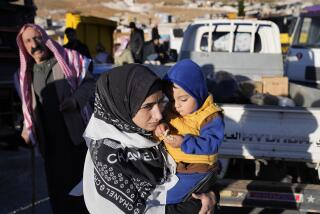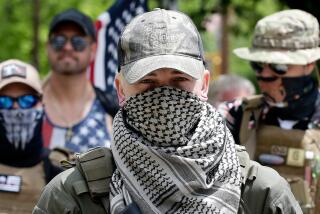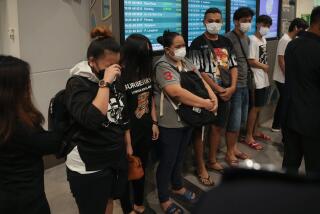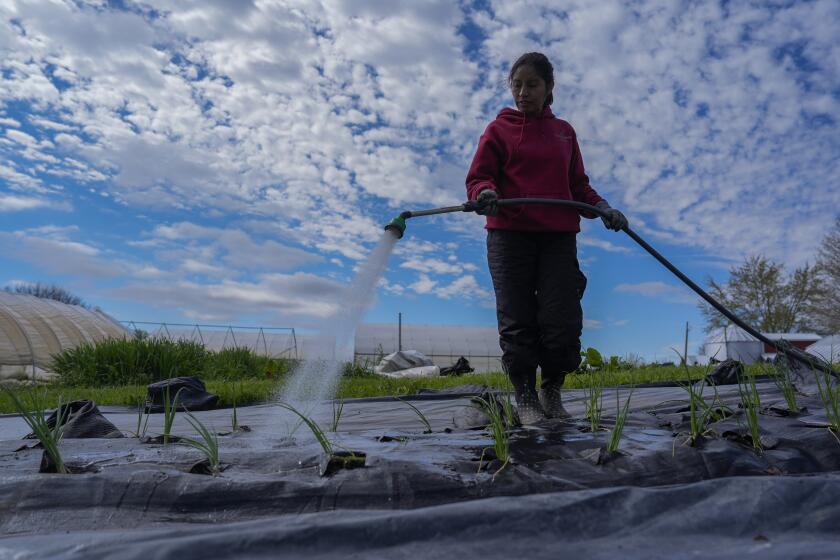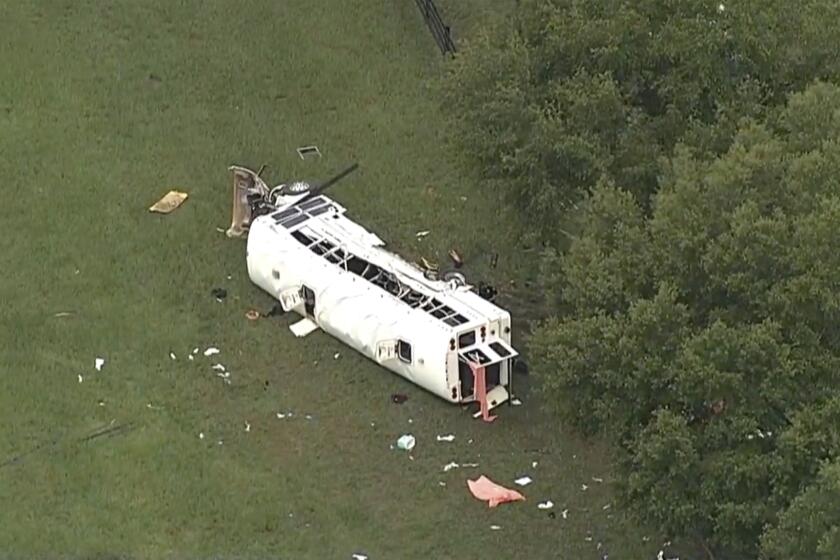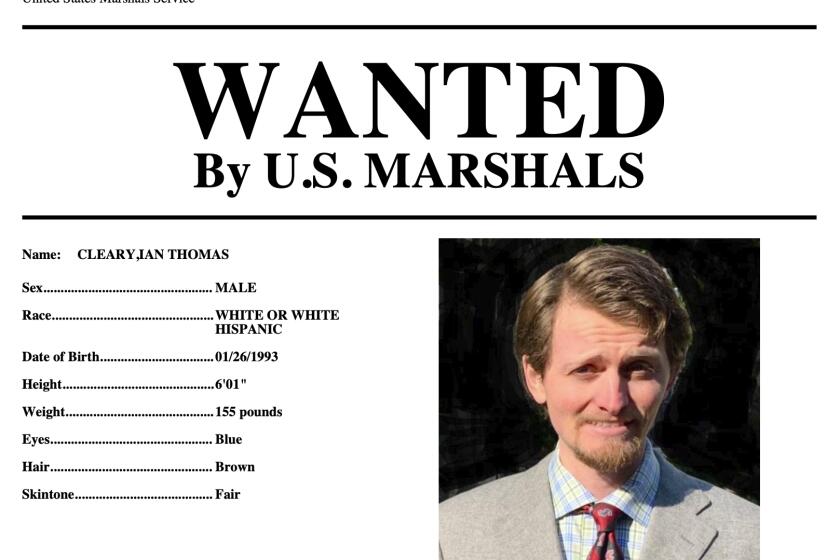Panama’s Poor Suffering Most but Many Still Call for Noriega Ouster
A stooped, skinny man, idling away the afternoon on a cane chair in his doorway, swept his arm toward the hundreds of cinder-block homes and wooden shanties cluttering the steep slopes and valleys of this Panama City suburb.
“All these people want change. Everybody must go into the streets,” he said quietly. “But the people are afraid. How are they going to do it? With their bare hands?”
With 400,000 residents, San Miguelito is one of the largest towns in Panama, and also one of the poorest. It is six miles from downtown and a world away from the posh homes of the National Civic Crusade members leading the campaign to oust Panamanian strongman Manuel A. Noriega.
The suburb’s people are the ones suffering most from the economic devastation that has engulfed Panama since late February, when the Reagan Administration threw its weight behind the Civic Crusade and imposed sanctions to push Gen. Noriega from power and into exile.
There were few signs during a weekend visit to support the government’s contention that only the white and wealthy oppose Noriega and that the poor and black are behind him. Apart from the town’s security chief, no one admitted to believing that Noriega should stay or that the campaign should cease because of the hardship it has brought.
At the same time, the poor of San Miguelito are quite aware of Noriega’s pervasive power over their lives. And many are terrified of doing much to work for change themselves.
Although he opposes Noriega, the 55-year-old man said he had taken part in several demonstrations in support of the general, whom the United States has accused of drug trafficking and related corruption.
The authorities had come often to the government office where he worked, seeking pro-Noriega “demonstrators” to offset those who were protesting against him. “They said it was voluntary, but everyone knew the consequences if we didn’t,” he added, drawing a finger across his throat. Now the man, who smiled and lowered his eyes when asked to give his name, said he is on forced vacation because the government has no money to pay him.
Anti-Noriega protests have subsided in recent days following a crackdown on the Civic Crusade.
“If they allowed us to demonstrate legally, not even the flies would stay in the houses,” said Leticia Esclopis, a 58-year-old woman who sells lottery tickets for a living. “The crusade’s contact is growing with the common people, but the fear is very great.”
Reyes Alvarez, a soft-spoken housewife in San Miguelito who directs the community’s church-sponsored free-lunch program, said thousands are now without work in the suburb, possibly 70% of the population. A total of 1,500 residents a day are receiving free lunches.
Many hundreds more are in need, Reyes said, but donated supplies are inadequate.
Over the weekend, volunteers at feeding stations, often set up in the yards of local families, heated caldrons of chicken stew and rice on impromptu wood fires and doled out one bowl per family member into pots brought by women.
In all, said Jorge L. Contreras, an organizer for Caritas, the Roman Catholic Church charity program, 70,000 people have been receiving free lunches at 80 kitchens in the Panama City archdiocese over the past six weeks. Companies and individuals donate the food.
On Feb. 25, Noriega engineered the dismissal of President Eric A. Delvalle after Delvalle tried to force Noriega to step down as armed forces commander. The United States declared that it still recognized Delvalle as president and launched the economic sanctions to oust Noriega.
At the Santa Rosa kitchen, in a concrete shed in San Miguelito, Rosemary Coronado supervised meals for 560 residents. She said she was laid off from a shoe shop a month ago because “there is no money.” Her husband still works but has not been paid in weeks.
“People come crying to my house for a glass of milk,” Coronado said. “The lowest people are suffering.” Nevertheless, she said, the people are not angry at the Civic Crusade or the United States but rather at Noriega for blocking the return of democracy.
“We consider the American pressure to be correct,” she said. “It’s the only way to force change. We are prepared to continue suffering. We in Panama are accustomed to democracy, and that is what we want for Panama.
“The military are the only ones who are not suffering,” she said.
Jose Luis Wong, San Miguelito’s security chief, expressed a different point of view, contending that the people were coping well and that those going to the soup kitchens “are not really hungry.”
If President Reagan had imposed such strong economic sanctions on any other country, “the poor would have risen up in revolt by now,” Wong maintained. “But look, these people are quiet, drinking a beer on a nice Sunday afternoon; they aren’t demonstrating. The situation is normal.”
Wong, lounging on the balcony of the town hall with colleagues, said that only the wealthy Civic Crusaders were stirring up trouble, without support from the nation’s majority. He said San Miguelito residents had joined volunteer “Dignity Brigades” to prepare for a potential U.S. invasion. The poor, he said, appreciate what Noriega has given them.
At a nearby church, a 40-year-old woman said, “It’s a great lie that all Crusaders are rich.” She said she was hosting a meeting of Civic Crusade members in her house that afternoon to discuss how to reignite the campaign from its current lull, to find ways to get rid of Noriega without bloodshed.
Residents said just one protest occurred in San Miguelito, a few months ago, and was dispersed.
Many residents worry about the sapos, Panamanian slang for informers who spy for signs of anti-government sentiment on their block. Few people will tell reporters their names for fear of reprisals.
Hector Barrios, a 20-year-old man helping at a kitchen, said he went on forced vacation from his job with an air-conditioning repair company in early March. He noted that it was the church, not the government, that organized the soup kitchens for those in need.
“Many of the poor are supporting this movement,” he said. “We don’t want this government either. There are some who support Noriega, but the great majority--no. But what can we do?”
More to Read
Start your day right
Sign up for Essential California for news, features and recommendations from the L.A. Times and beyond in your inbox six days a week.
You may occasionally receive promotional content from the Los Angeles Times.
